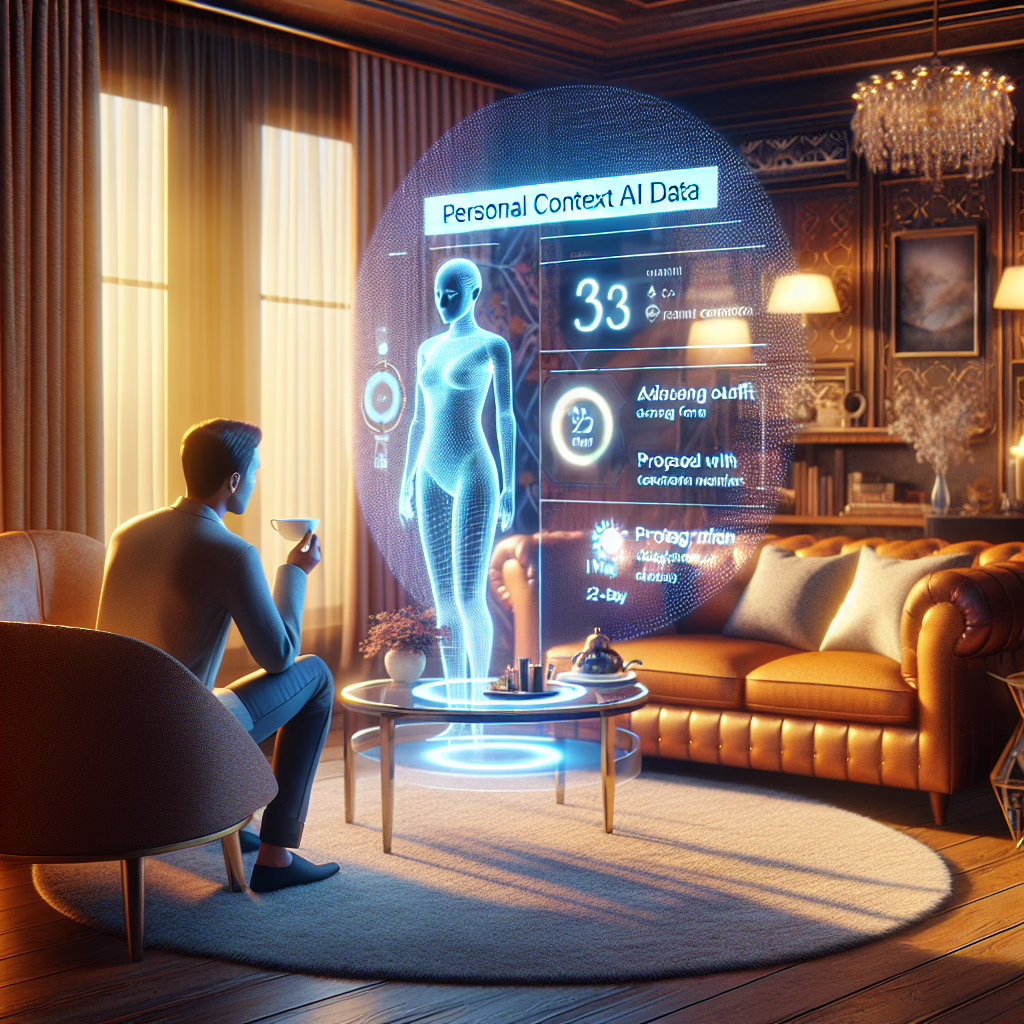In the grand circus of technology, Google just revealed its newest act: personal context AI. This dazzling innovation takes the spotlight, promising to use your data not just to serve ads for products you never knew you needed, but to actually enhance your life. Yes, you heard that right! Google’s AI is here to turn your mundane daily tasks into a personalized experience that feels like it was crafted just for you.
What is Personal Context AI?
Let’s break this down. Personal context AI is like that overzealous friend who remembers every detail about your life—your favorite coffee order, your pet’s birthday, and even that embarrassing incident from last year’s office party. Except this friend is powered by algorithms and machine learning! Google’s AI aims to tailor its services based on the myriad data points it collects about you. Think of it as a digital assistant that knows you better than you know yourself.
But don’t worry; this isn’t an episode of Black Mirror… yet! The key here is that all this information can potentially help streamline your day-to-day tasks. Imagine asking Google Assistant, “What should I wear today?” and receiving a tailored outfit suggestion based on the weather, your calendar events, and perhaps even how many doughnuts you had yesterday.
The Data Dilemma: Privacy vs. Personalization
While the idea of having a personal assistant who remembers everything sounds dreamy, it does bring up the age-old debate of privacy versus personalization. After all, who wouldn’t want their personal context AI to know what they like? The catch? You have to give up some privacy to get there. It’s like trading your secrets for a cup of coffee with a barista who can whip up the perfect brew just for you—sweet deal or steep price?
Google insists that user data is treated with utmost care. They claim to anonymize it before using it to train their models. However, we all know how trust works in tech; it’s often as fragile as a smartphone screen without a case. So, while we enjoy our customized experiences, we must keep one eye open for any surprises that may pop up—like an unexpected ad for cat sweaters when you’ve never owned a cat!
The Sweet Benefits of Personal Context AI
Now let’s focus on the bright side—because who doesn’t love a bit of optimism? The benefits of personal context AI could be quite delightful. For instance:
- Efficiency: Tasks can be completed faster when your devices know what you need before you do.
- Convenience: No more searching through endless tabs; your personal context AI could serve up relevant information just when you need it.
- Fun! Remember those days when technology felt magical? This might just rekindle that spark.
If executed well, personal context AI could make our lives smoother than ever. Imagine waking up and having your coffee brewing while your calendar syncs with reminders about important meetings, all thanks to your trusty digital sidekick!
The Role of Data in Shaping Your Experience
Data is the lifeblood of personal context AI. Every click, every search query, every moment spent in front of a screen feeds the algorithm that ultimately serves you better content. It’s like feeding a gremlin after midnight—if done wrong, you might end up with something chaotic!
However, if we embrace this evolution with a bit of caution and respect for our privacy, we might just find ourselves in an era where technology truly enhances our lives rather than complicates them further. The balance of personalization and privacy is critical as we navigate this digital landscape.
A Bright Future with Caution
In conclusion, Google’s venture into personal context AI promises not only to change how we interact with technology but also challenges us to think critically about the balance between convenience and privacy. As we navigate this brave new world together, let’s keep our eyes peeled for both the wondrous opportunities and potential pitfalls lurking around each digital corner.
So what do you think? Are you ready to let Google’s personal context AI take the reins on your daily life? Or would you prefer to keep things old-school? Share your thoughts below!
A huge thank you to The Verge for their insightful article that inspired this piece!

